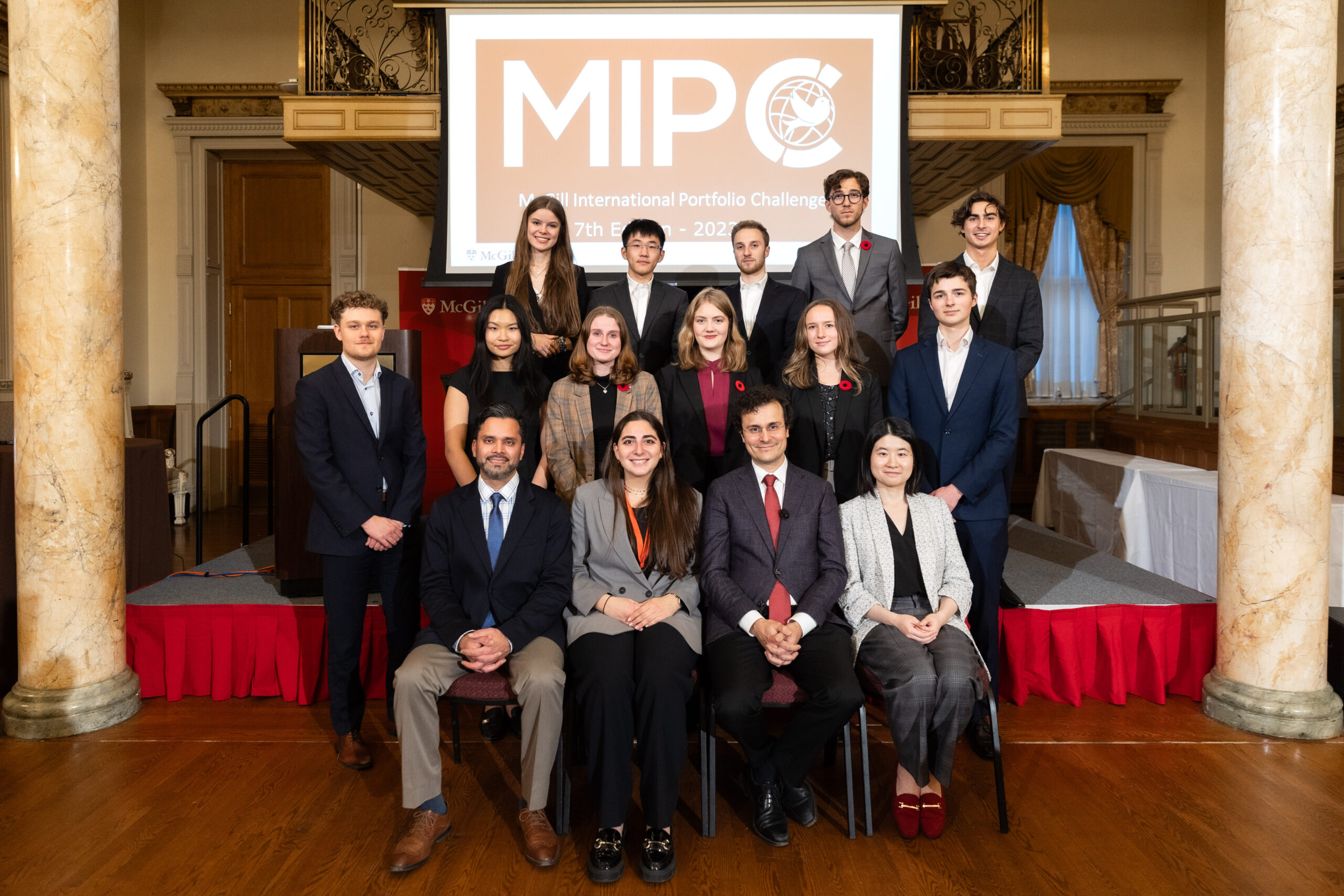
Inflation and higher interest rates have affected everyone, but they present some unique challenges to retirees. The amount of money you need to save for retirement is always a bit of a guessing game. After all, you never know exactly how long you will live. But shifting macroeconomic circumstances make it even more difficult. Asset valuations and yields can change significantly, and that makes it more difficult to know how to hold your savings and when to withdraw them.
Decumulating assets in this environment is a problem for individuals and fund managers alike. And the 2023 McGill International Portfolio Challenge (MIPC) asked business students from around the world to consider the Maple Leaf Pension Plan. This fictional plan used real-world data to simulate a fund with more than $60 billion in assets, and 200,000 plan members in the auto industry in Canada. MIPC participants were asked to develop a new product that provides members with managed withdrawals and hedges against inflation.
“MIPC is not a standard case competition. It asks students to tackle critical societal challenges, where the buy-side of finance meets and interacts with the future,” says Sebastien Betermier, Associate Professor of Finance at McGill Desautels, and the director of MIPC.
“We’re facing higher inflation than we’ve seen in decades, and it is especially difficult for people about to retire on a fixed income. Those with a defined contribution plan have accumulated a fixed sum of capital, and need to live with that sum for the rest of their days. A lot of them are hurting, and don’t necessarily know how to consume their fixed amounts. They don’t know how to invest the money they have, because there is a lot of risk. And they tend to go into cash, but that is the worst thing you can do in times of high inflation.”
Teams from around the world
More than 80 teams from 27 countries participated in MIPC 2023, and the 24 semi-finalists included universities from Argentina, Australia, Austria, Canada, China, Germany, India, Ireland, Lebanon, Thailand, and the United States. The award for top proposal was shared by Team White Sail Capital of Chulalongkorn University and Team Wealth Intellects of Simon Fraser University, with Team Sky Capital of The Chinese University of Hong Kong winning first runner-up.
“There are no easy solutions to these problems, and the best proposals are the ones that were the most comprehensive and pragmatic,” says Betermier. “They are not necessarily the most creative or the most quantitative. You need solutions that can actually be implemented. The winning teams really thought through the whole stakeholder problems across the board.”
Hybrid MIPC brings in record number of participants
MIPC launched as an in-person event in 2017, and shifted online when the pandemic shut down university campuses and international travel. This year’s event was the first to go hybrid which helped make it the largest MIPC yet. Hybrid events require the simultaneous execution of virtual and in-person elements, and planning for these complicated logistics was led by a team of McGill students.
“It is a big responsibility. We are responsible for carrying McGill’s name, and making sure the event is of professional quality,” says Kami Der-Sahakian, the executive director of the organizing team. “And the student organizing team has been given that responsibility and trust because it has been successful over the years. We have shown that we can handle it, and our team looks for students who want to take ownership, who want responsibility and who want to work with others.”
Exposure to real-world issues
This year’s event was a win-win-win for organizers, participants and the many sponsors who made it possible.
“MIPC gives students rich experience and exposure to industry, and it also gives them sensitivity to the issues at hand in society and the economy,” says Zahoor Chughtai, Associate Director of McGill’s Sustainable Growth Initiative, which oversees the event.
“And that is important because one day, they will become leaders. You are sensitizing them to issues they will tackle, either professionally, personally, or both.”
And professional participants are able to take something from the event too.
“Large Canadian pension funds look at MIPC from multiple angles,” says Betermier. “It is a way of coaching their staff, because you learn a lot by being a mentor. It is a way of recruiting the next generation, because you get to see students working directly on what you do. And it is pension advocacy work, because you get students all working on these challenges. We call it a portfolio challenge and not a pension challenge because people might think pensions and retirement are not that interesting. But when you hand over the case, they realize how complex this really is.“
